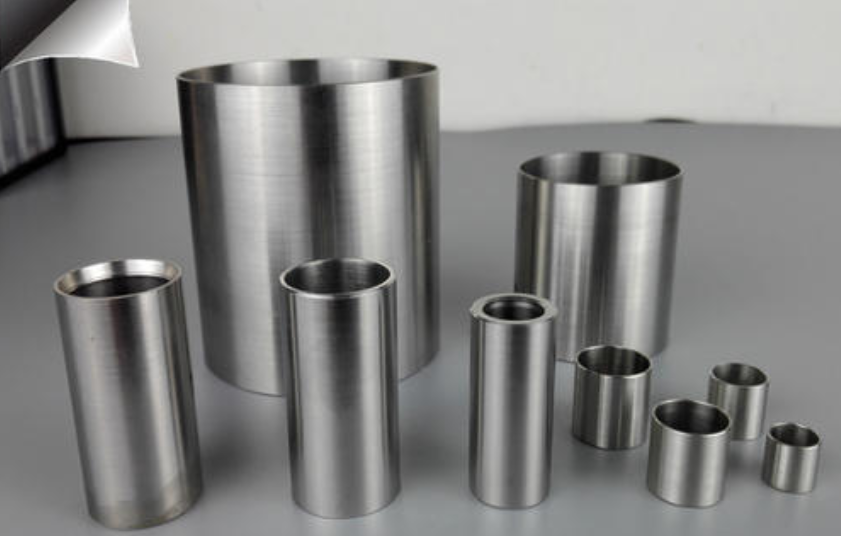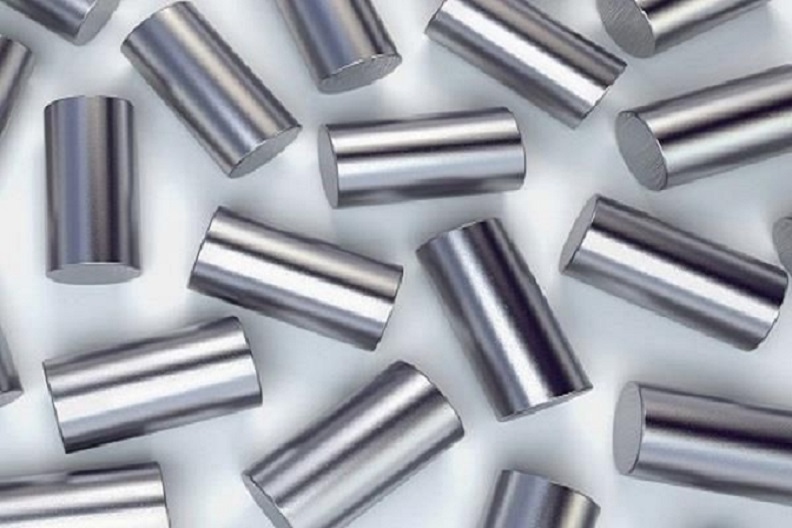Molybdenum Alloys 101

Molybdenum Alloys 101
Molybdenum alloy is an alloy composed of molybdenum as a matrix and other elements added. Due to its excellent properties, molybdenum alloy has been widely used in industry and our everyday life. If you are looking for information about molybdenum alloys, then you've come to the right place. In this article, we will focus on some basic knowledge about molybdenum alloys.
 Molybdenum Alloys
Molybdenum Alloys
1. A Brief Introduction to Molybdenum Alloys
Molybdenum alloy is a non-ferrous alloy composed of molybdenum as a matrix and adding other elements. The main alloying elements are titanium, zirconium, hafnium, tungsten, and rare earth elements.
The elements of titanium, zirconium, and hafnium not only play a role in solid solution strengthening of the molybdenum alloy, maintain the low-temperature plasticity of the alloy, but also form a stable and dispersed carbide phase to improve the strength and recrystallization temperature of the alloy.
Molybdenum alloy has good thermal conductivity, electrical conductivity, and low expansion coefficient. It has high strength at high temperatures (1100 ~ 1650 ℃) and is easier to process than tungsten.
2. The History of Molybdenum Alloys
In 1910, powder metallurgy technology has been used to produce molybdenum products. Prior to 1945, the powder metallurgy process has been the only industrial production method for the production of molybdenum sheets, wires, and rods. In the mid-1940s, RParke and J.L. Ham developed a method for producing high-performance molybdenum and molybdenum alloy ingots using a consumed electric arc melting process.
From the late 1940s to the mid-1960s, in order to meet the needs of atomic energy, aviation, and aerospace technology, an extensive study of molybdenum alloys and related processes was carried out to develop Mo-0.5Ti-0.02C alloy, Mo-0.5Ti-0.1Zr-0.02 C (TZM) alloy. From the late 1960s to the early 1970s, Mo-Hf-C alloys with higher strength were made.
3. Molybdenum Alloy Series
Industrially produced molybdenum alloys can be divided into Mo-Ti-Zr series alloys, Mo-W series, Mo-Re series alloys, and Mo-Hf-C series alloys.
Titanium-Zirconium-Molybdenum Alloy has the characteristics of a high melting point, high strength, high elastic modulus, small linear expansion coefficient, low vapor pressure, good electrical and thermal conductivity, strong corrosion-resistance, and good mechanical properties at high temperatures, so it is widely used in many fields.
TZC (Mo-1.25 Ti-0.15 Zr-0.15C) alloy has higher high-temperature strength and recrystallization temperature than Titanium-Zirconium-Molybdenum Alloy, but the processing is difficult and the application is limited.
4. The Applications of Molybdenum and Molybdenum Alloys
Among the refractory metals, molybdenum and molybdenum alloys have good thermal conductivity, electrical conductivity, and low expansion coefficient, and have high strength at high temperatures (1100 to 1650 ° C). Compared with tungsten, it is easier to process, so it is used in electronic tubes (grids and anodes), electric light sources (support materials), metal processing tools (die casting and extrusion molds), and the aerospace industry.
 The Uses of Molybdenum Alloys in Aerospace Industry
The Uses of Molybdenum Alloys in Aerospace Industry
Molybdenum is resistant to the erosion of molten glass, and its oxides will not contaminate the glass. Since 1943, molybdenum has been used as a heating electrode in the glass industry. Mo-30W alloy has excellent resistance to corrosion of molten zinc and has been successfully used in the zinc smelting industry. Molybdenum is also used to manufacture heat exchangers and valves in sulfuric acid production.
Conclusion
Thank you for reading our article, and we hope it can help you have a better understanding of molybdenum and molybdenum alloys. If you want to know more about molybdenum and other refractory metals, you can visit Advanced Refractory Metals (ARM) for more information.
Headquartered in Lake Forest, California, USA, Advanced Refractory Metals is a leading manufacturer & supplier of refractory metals across the world. We provide our customers with high-quality refractory metal products like tungsten, molybdenum, tantalum, rhenium, titanium, and zirconium at a very competitive price.
{{item.content}}
LEVE A REPLY
{{item.children[0].content}}
{{item.content}}






